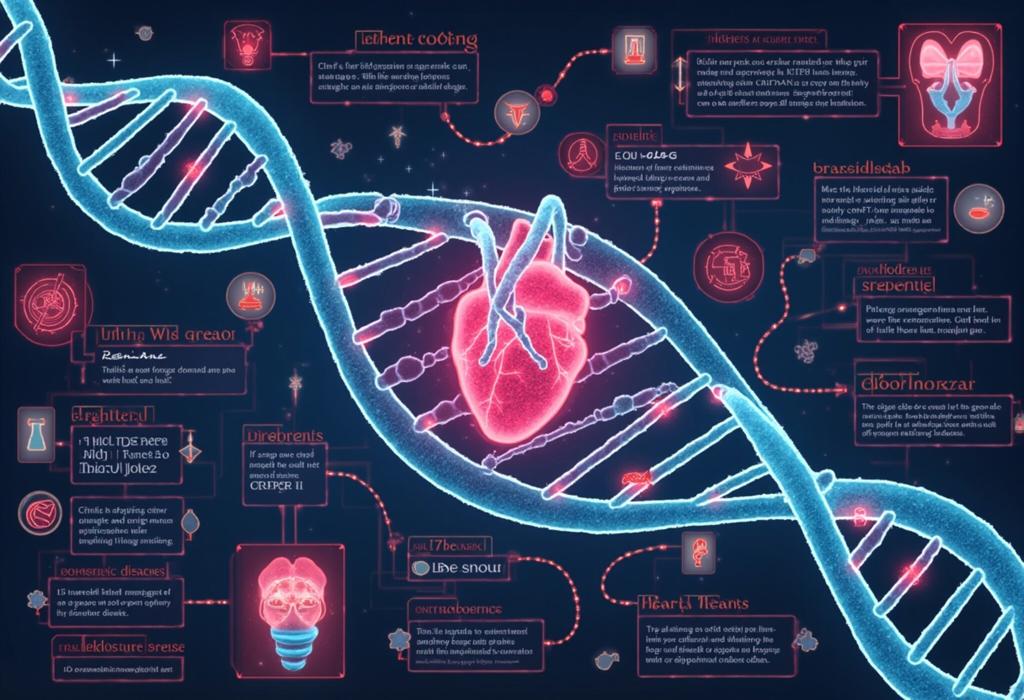For more details on this content, please review the step-by-step guide and frequently asked questions.
The Intersection of Genetics and Disease

Step-by-Step Guide
Understanding Genetics
Genetics is the study of genes, which are the basic units of heredity in living organisms. Genes carry the information that determines traits and characteristics. They are made up of DNA and can be influenced by both inherited and environmental factors.
The Role of DNA
DNA (deoxyribonucleic acid) is the molecule that carries genetic instructions for the development, functioning, growth, and reproduction of all known living organisms. Each person's DNA is unique and can influence their susceptibility to various diseases.
Types of Genetic Variants
Genetic variants can be classified into several types, primarily including single nucleotide polymorphisms (SNPs), copy number variations (CNVs), and more complex structural variations. Understanding these variants helps in identifying genetic predispositions to diseases.
Genetic Influence on Common Diseases
Many common diseases, such as diabetes, heart disease, and certain cancers, have a genetic component. Researchers study familial aggregation and heritability to understand how genes contribute to these diseases and which variants are responsible.
Mendelian Disorders
Mendelian disorders are caused by mutations in a single gene and follow a clear pattern of inheritance. Examples include cystic fibrosis and sickle cell disease. Understanding these disorders can provide insights into the role of genetics in disease.
Complex Genetic Disorders
Complex diseases result from multiple genes and environmental factors. Examples include heart disease and schizophrenia. These diseases are more challenging to study because they do not follow simple inheritance patterns.
Genetic Testing
Genetic testing involves analyzing DNA to identify genetic variants that may lead to disease. It can provide valuable information for disease prevention and personalized treatment plans.
Ethical Considerations
The intersection of genetics and disease raises ethical questions regarding privacy, discrimination, and informed consent. It is crucial to navigate these ethical concerns responsibly.
Targeted Therapies and Precision Medicine
Advancements in genetics have led to targeted therapies, which are treatments designed to target specific genes or proteins involved in disease. Precision medicine uses genetic information to tailor treatments to individual patients.
Future Directions in Genetic Research
Ongoing research aims to further understand the complex interactions between genetics and disease. This includes exploring gene editing techniques like CRISPR, which have the potential to correct genetic mutations.








